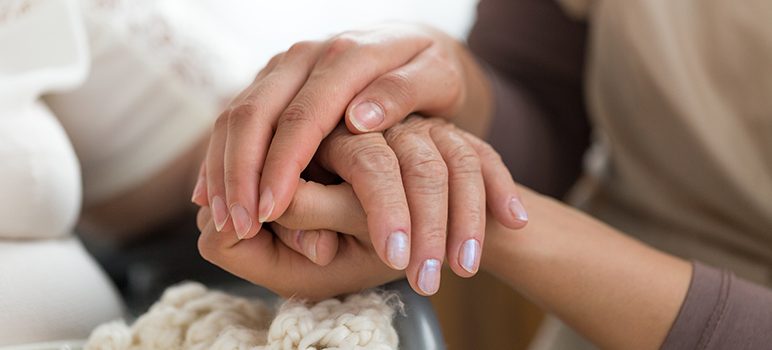Family Caregiver is a title once known by a handful of the population, but its relevance is rapidly growing. A role that can be fulfilling, yet simultaneously challenging, caregivers often must respond quickly, under duress, and with a constant awareness that a loved one's life is in their hands, a role not taken lightly.
Despite the important role they play, caregivers are under tremendous stress mentally and physically, and the topic of their own self-care often is overlooked by themselves and by others. As a former family caregiver, I understand the reasons why. Days are full of tasks and emotions, fielding questions and making difficult decisions.
A friend’s well-intended suggestion to “take care of yourself” can push a caregiver over the edge because the very idea of one more thing ‘to-do’ can be exhausting.
When the needs of a caregiver aren’t addressed, the consequences can be severe, not only to the caregiver, but ultimately to their loved one. A study by the U.S. National Library of Medicine National Institutes of Health found that participants who were providing care and experiencing caregiver strain had mortality risks that were 63 percent higher than people who were in non-caregiving control groups.
Practicing self-care is not selfish—it’s vital.
But far too often, caregivers put themselves last while wrestling with a variety of emotions. The reality is, caring for a loved one when your emotional and physical tank is empty is a time bomb. The ability to react quickly and make difficult decisions is compromised, and with the inevitable oversights, the feeling of guilt arises, self-doubt comes into play, and the cycle continues.
Hearing the cries of my own mother being tossed around by an uneducated caregiver not only had an emotional impact, but it also set off a cycle of self-doubt that took a toll.
Self-care for a caregiver does not have to be a significant event and even the smallest acts will have a positive impact. It can be as simple as writing in a journal, reigniting a hobby that can be done while staying with a loved one or starting the day early to have time alone or have coffee with a friend. Mindfulness and movement have also proven to be powerful tools for caregivers. Three simple deep breaths can bring a much-needed calm. A walk outdoors not only has health benefits, it can also be an opportunity to regenerate.
Self-care is also about connecting.
Talking with friends and family or a counselor can be a tremendous support. The most powerful connection can be with other caregivers who often are experiencing similar feelings. The ability for a caregiver to discuss what they are going through with others who understand, and without the concern of being judged, can be lifesaving. We cannot overlook those connections.
If you are a family caregiver reading this, or know someone who is, reach out, somewhere or to someone. Know that it is vital to practice self-care.
The Aging Services Collaborative Caregivers Conference on Saturday at the Campbell Community Center is designed to support families and friends caring for their loved ones.
It is a wonderful way for caregivers to connect with each other, hear from experts who can help caregivers navigate their journey, and speak with representatives from a variety of organizations that can provide much-needed resources and support.
Don’t do this alone.
Connections are powerful. Self-care is life-saving, for caregivers and for their loved ones.
Cyndi Mariner, a Sunnyvale resident, is the founder and president of Breathing Spaces: Family Caregiver Support Network. Opinions are the author’s own and do not necessarily reflect those of San Jose Inside. Send op-ed pitches

